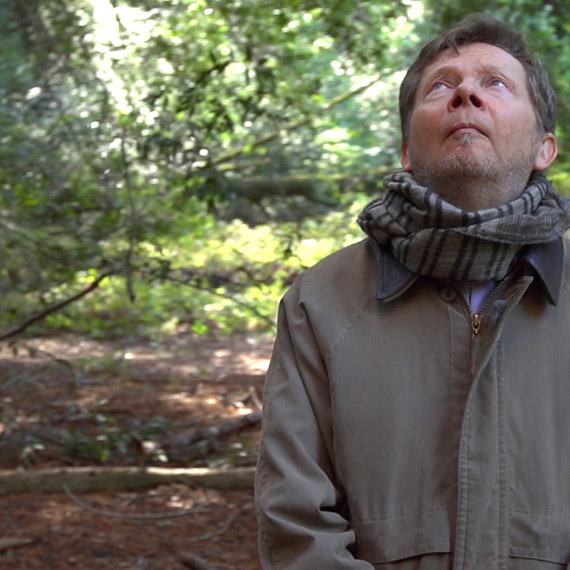Every day and every moment is an occasion for the celebration of life.
There are many times, however, when we may feel that it's just not possible to be content. It's so easy to become mired in the day-to-day challenges that feed our inner pain: petty arguments with our children or spouse, being unrecognized for our hard work, having one more task to complete before we can take a needed break. We all have the tendency to slip into frustration, anger, and depression, and it's hard to know where to start to make a change for the better.
Creating a life of contentment isn't an easy process for some, but we can learn from spiritual teachers like Eckhart Tolle to start to unlock the secret of finding joy in everyday life.
Here's how to get started.
Create Awareness
The process starts with awareness. Eckhart tells us that, as the writer Plutarch has explained, we must become aware of what it is in us that blocks us from contentment. As a priest at the temple of the Oracle of Delphi in ancient Greece, Plutarch passed by an inscription on the temple wall every day which read "know thyself." This inscription, according to Eckhart, is a means to begin to explore who or what you are in your essence beyond what you see in the mirror.
Start by giving yourself permission to become aware of what you do, and how you act in response to other people or to challenging situations. If you face a difficult situation, stop for a moment and think about where, in your body, you are feeling constrained. Notice where your mind wanders.
Understand Your Patterns
Knowing yourself takes more than observing your reactions and following your instinct. It's about truly understanding the patterns that you follow as a matter of course: in your work, at home, and when you are alone. Knowing who you really are and why you tend to take on these patterns is a means to seeing where change might happen.
How do you know who you are? Ask yourself. Take the time to write down how you feel in any given challenge, but also how you feel about things that are important to you. Draw a picture of your feelings, and try to interpret what you see in front of you. When are the times when you feel the most happy?
Observe What's Missing
The next step, as Eckhart teaches, is to look at what is it in us that needs to change, and what needs to arise in us. Eckhart explains that people are able to "find something congruent and useful to themselves from the most forbidding of situations. Even the most seemingly unpleasant situations -- if you become aligned with it, something good will emerge from that." With self-awareness comes room for new thinking and feeling patterns to take shape.
We need to observe where and when it is that we can find gratitude for what we experience in life. Make room for an appreciation of the smallest things in life, like a child's hand holding our own, a walk in the forest and the smell of the pine needles, or the sound of the wind. Take the time to notice these things, but also observe what happens in your body and your mind when you give time to the present moment. What has changed from when you first started becoming aware of your life patterns?
Make Time for Light and Dark
No matter what, life is never going to offer a simple and profound joy every day. To this end, as Eckhart teaches us, we need to understand that to expect not to experience the dark side of life is unrealistic, and it leads to suffering. Eckhart suggests that we need to remember the teachings of another ancient Greek playwright, Euripides, who wrote, "I say poor me, but why? I am only experiencing what it is to be human." The polarities that we face in life, namely the wonderful highs and the difficult lows, are something that can test our commitment to contentment, because we are always craving one and avoiding the other.
When faced with a challenge, make it your wish to look at both the light and the dark side of the situation. Remember that this is part of the human experience. Being conscious of your feelings, can help you to transcend a state of suffering and appreciate what you do have, rather than focus on what you do not have.
Tap Into the Joy of Now
Eckhart Tolle teaches us that living in a state of inner peace is everyone's birthright, and that in living in acceptance and presence, daily obstacles may become pleasant and even uplifting. Eckhart says, "we should purify our innate well of contentment -- what a wonderful expression -- and then external things will be in harmony with us." As he writes, this is what the ancient sages of India called ananda -- the bliss of Being.
We all need to draw from the well of contentment sometimes. To keep the well full, take time for yourself every day to follow your own spiritual or psychological path. There are many ways to do this. Your bliss of Being may be found in the simple observation of beauty in the world. You can immerse yourself in the practice of meditation or yoga, or follow the teachings of your religious institution of choice.
Ultimately, the bliss of Being comes from within. When we take the time to know ourselves and what will fill our own well of contentment, we become fully conscious. In doing so, we can unblock the obstacles to our own contentment.

